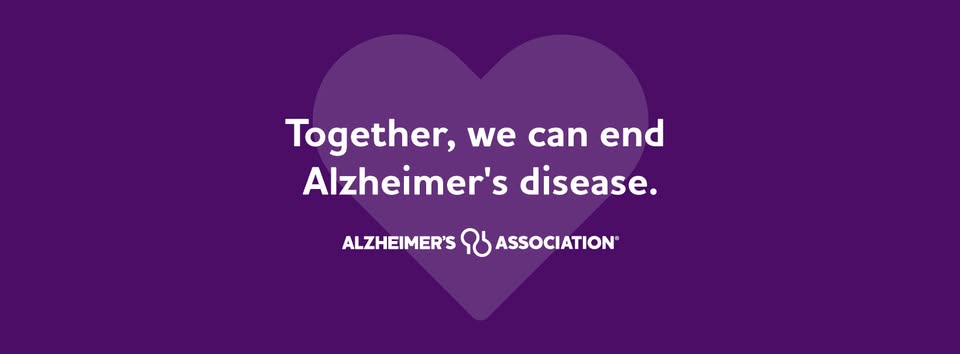Is There a Cure for Alzheimer's Disease?
Alzheimer’s disease is a progressive neurodegenerative disorder that gradually erodes memory, thinking abilities, and cognitive function. Eventually, it affects a person’s ability to carry out even the simplest daily tasks. If you or someone you love has been diagnosed with Alzheimer's, you may be searching for answers, wondering:
"Is there a cure for Alzheimer's disease?"
The unfortunate reality is that there is no definitive cure for Alzheimer’s disease. However, recent advancements in dementia research and memory loss treatments offer hope for slowing cognitive decline, managing symptoms, and ultimately preventing Alzheimer’s disease in the future.
In this article, we’ll explore the latest developments in Alzheimer’s treatments, symptom management strategies, and future research breakthroughs that could bring us closer to a cure.
Promising Treatments for Alzheimer's Disease
While no treatment can completely stop neurodegeneration, some FDA-approved Alzheimer’s medications have shown promising results in delaying cognitive impairment.
Donanemab (Kisunla™) and Lecanemab (Leqembi®): A New Hope
Donanemab and lecanemab are breakthrough Alzheimer’s drugs that specifically target beta-amyloid plaques, a key contributor to brain cell damage in Alzheimer’s patients.
- How They Work: These drugs help clear beta-amyloid plaques, potentially slowing memory loss and cognitive decline in people with early-stage Alzheimer’s.
- Who Can Take Them: Typically prescribed for individuals with mild cognitive impairment or early-stage Alzheimer’s disease.
- Limitations: While promising, these medications don’t reverse the disease. They also come with potential risks, including brain swelling and microbleeds, requiring careful medical supervision.
Although these treatments offer new hope, they are just one piece of the puzzle in the fight against Alzheimer’s disease.
Symptom Management: Living Well with Alzheimer's Disease
Since there is no cure, managing Alzheimer's symptoms becomes crucial for improving the quality of life for both patients and caregivers. A combination of medications, cognitive therapy, and lifestyle changes can help slow down mental decline and maintain independence.
Medications for Symptom Management
While amyloid-targeting drugs focus on slowing disease progression, other medications help with cognitive function and behavioral symptoms:
- Cholinesterase inhibitors (e.g., donepezil, rivastigmine, galantamine) temporarily improve memory and thinking abilities by increasing levels of acetylcholine, a neurotransmitter involved in learning.
- Memantine helps regulate glutamate, a chemical that, when unbalanced, contributes to cognitive decline.
- Antidepressants and anti-anxiety medications may help manage agitation, mood swings, and depression associated with Alzheimer’s disease.
Supportive Therapies and Lifestyle Adjustments
Beyond medication, several non-drug therapies have been shown to enhance brain health and improve overall well-being:
- Occupational therapy helps individuals adapt to daily challenges and maintain independence.
- Cognitive stimulation therapy (CST) involves activities like puzzles, music therapy, and memory exercises to strengthen brain function.
- Regular physical activity improves blood circulation to the brain and helps reduce inflammation.
- Nutritional therapy, including a Mediterranean diet rich in antioxidants and omega-3 fatty acids, supports brain health.
- Establishing structured routines reduces confusion, anxiety, and stress for both patients and caregivers.
Current Research and Future Directions
Scientists are actively exploring potential Alzheimer’s cures, from gene therapy to anti-inflammatory treatments. Let’s take a look at the most promising areas of study.
Gene Therapy and Genetic Risk Factors
Certain genes, like APOE4, increase Alzheimer’s risk. Scientists are researching gene-editing techniques, such as CRISPR, to modify these genetic risk factors before the disease develops.
Can We Prevent Alzheimer’s? Lifestyle Interventions Show Promise
Emerging evidence suggests that healthy lifestyle habits may delay or even prevent Alzheimer’s disease:
- Regular exercise increases brain plasticity and reduces beta-amyloid buildup.
- Brain training activities, such as reading, learning new skills, and playing strategy games, strengthen cognitive resilience.
- Managing cardiovascular health by controlling blood pressure, cholesterol, and diabetes reduces the risk of dementia.
- Prioritizing sleep and stress management improves mental clarity and reduces inflammation linked to neurodegeneration.
Early Detection and Biomarkers: A Game-Changer
One of the biggest challenges in Alzheimer’s treatment is that, by the time symptoms appear, significant brain damage has already occurred. Scientists are developing biomarkers, including blood tests and advanced brain scans, that can detect Alzheimer’s disease years before symptoms begin.
Experimental Drugs and Alternative Therapies
Researchers are testing several promising therapies:
- Tau protein-targeting drugs: These focus on clearing tau tangles, another hallmark of Alzheimer’s disease.
- Stem cell therapy: A potential breakthrough treatment that could help regenerate damaged neurons.
- Anti-inflammatory drugs: Chronic brain inflammation is a key factor in Alzheimer’s progression, and treatments targeting neuroinflammation are being developed.
- Hormone therapy: Some studies suggest that estrogen replacement therapy may have neuroprotective effects for women.
The Role of Organizations and Advocacy Groups
Organizations like the Alzheimer’s Association, Dementia Research Institute, and National Institute on Aging play a crucial role in:
- Funding cutting-edge Alzheimer’s research
- Raising awareness and reducing stigma surrounding dementia
- Providing support for patients, caregivers, and families
- Advocating for policy changes to improve Alzheimer’s care
If you’re looking for ways to help, consider donating, volunteering, or participating in a clinical trial. Every bit of support brings us closer to a future without Alzheimer’s disease.
While there is no definitive cure for Alzheimer’s disease, scientific advancements in Alzheimer’s treatments, dementia research, and early detection are bringing us closer than ever before. If current trends continue, we may one day be able to stop or even prevent this heartbreaking disease.
In the meantime, for those affected by Alzheimer’s, the focus should be on improving quality of life through symptom management, supportive therapies, and strong community support. If you or a loved one is navigating this journey, know that you are not alone.
Would you like to explore more resources on Alzheimer’s prevention, brain health, or cutting-edge research? Let me know, and I’d be happy to guide you in the right direction!
Supporting the Fight Against Alzheimer’s. Your Referrals Help Our Seniors
We are on a mission to raise money for The Alzheimer’s Association. Who do you know considering buying or selling a home that you can refer to our Real Estate sales Team? Not only will they benefit from our award-winning service, but a very worthy cause will benefit as well. To refer someone, give us a call at 929-203-9101 You can help us help the community!
For more information on The Alzheimer’s Association visit www.alz.org
Your Referrals Really Do Help…
Call or text us at 929-203-9101 to refer someone today!
Every referral helps, and together, we can make an impact in the fight against this disease.
🧠 Frequently Asked Questions About Alzheimer’s Disease
1. Is there a cure for Alzheimer’s disease?
Currently, there is no definitive cure for Alzheimer’s disease. However, medical advancements like Donanemab (Kisunla™) and Lecanemab (Leqembi®) have shown promise in slowing cognitive decline by targeting beta-amyloid plaques in the brain. Researchers continue to explore gene therapy, stem cell treatments, and early detection biomarkers that could eventually lead to a cure.
2. What are the newest treatments for Alzheimer’s disease?
The most recent FDA-approved drugs—Donanemab and Lecanemab—work by reducing amyloid plaque buildup, potentially delaying the progression of early-stage Alzheimer’s. Other treatments focus on symptom management, such as cholinesterase inhibitors (donepezil, rivastigmine, galantamine) and memantine, which help maintain brain function and reduce behavioral symptoms.
3. Can Alzheimer’s disease be prevented?
While there’s no guaranteed prevention, studies show that healthy lifestyle habits can lower the risk. These include:
-
Regular physical exercise
-
A nutrient-rich diet (like the Mediterranean diet)
-
Mental stimulation through reading, puzzles, or learning new skills
-
Managing cardiovascular health (blood pressure, cholesterol, and diabetes)
-
Getting enough sleep and managing stress
4. Who can take Donanemab or Lecanemab?
These drugs are typically prescribed to individuals with mild cognitive impairment or early-stage Alzheimer’s disease. Patients must undergo medical evaluation and regular monitoring due to possible side effects such as brain swelling or microbleeds.
5. What are the most common symptoms of Alzheimer’s disease?
Early signs include:
-
Memory loss affecting daily life
-
Difficulty planning or solving problems
-
Confusion with time or place
-
Trouble understanding visual images
-
Misplacing items and poor judgment
-
Withdrawal from work or social activities
-
Personality or mood changes
If you notice these symptoms, consult a neurologist for early evaluation.
6. What supportive therapies can help someone living with Alzheimer’s?
Supportive, non-drug therapies play a key role in maintaining quality of life:
-
Occupational therapy to adapt to daily tasks
-
Cognitive stimulation therapy (CST) to engage memory and thinking skills
-
Exercise to enhance circulation and reduce inflammation
-
Nutritional therapy for brain health
-
Structured routines to minimize anxiety and confusion
7. What research is being done to find a cure for Alzheimer’s?
Ongoing research focuses on:
-
Gene therapy to modify risk genes like APOE4
-
Stem cell therapy to regenerate brain cells
-
Tau protein-targeting drugs to remove toxic tangles
-
Anti-inflammatory therapies to reduce brain inflammation
-
Biomarkers and early detection tests to diagnose Alzheimer’s before symptoms appear
8. Are there clinical trials for Alzheimer’s disease?
Yes. Many research institutions and organizations, including the Alzheimer’s Association and the National Institute on Aging, conduct clinical trials for experimental therapies. Participation can provide access to new treatments and contribute to scientific progress.
9. How can families and caregivers support loved ones with Alzheimer’s?
-
Educate yourself about the disease and its stages.
-
Create a calm, structured environment.
-
Use clear communication and visual cues.
-
Seek caregiver support groups for emotional and practical help.
-
Take advantage of community programs and respite care services.
10. How can I help in the fight against Alzheimer’s?
You can support organizations like the Alzheimer’s Association by donating, volunteering, or referring others to programs that raise awareness and funding.
At Your Home Sold Guaranteed Realty Advisors LLC, every home sale helps support Alzheimer’s research.
To refer someone buying or selling a home—and make a difference—call 929-203-9101 or visit www.alz.org.

Categories
- All Blogs (399)
- Agent Recruiting (74)
- Buyer w/House to sell (45)
- For Home Buyers (90)
- For Home Sellers (96)
- How to Blogs (3)
- Lifestyle (23)
- Miscellaneous (1)
- Our Worthy Cause (58)
- Probate (45)
- Staten Island Neighborhoods (16)
- Staten Island Real Estate Market Update (5)
- TW EMAILS (6)
- Weekend Events (19)
Recent Posts










GET MORE INFORMATION

Broker | License ID: 10491210994
